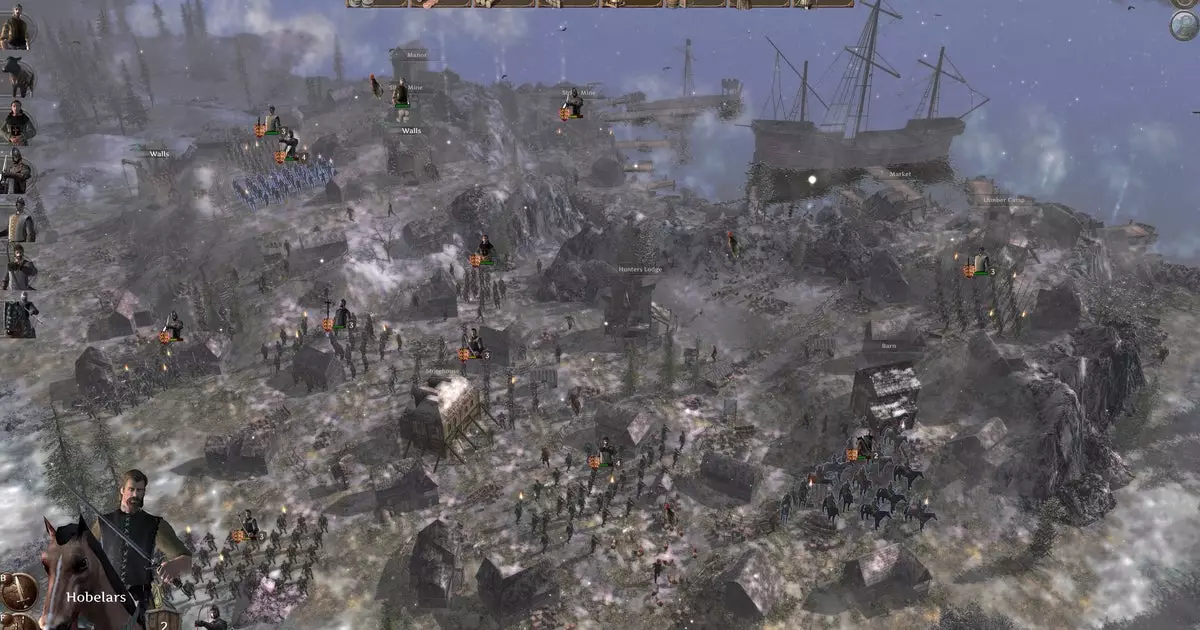For decades, the Crusades have captured the imagination of historians, filmmakers, and gamers alike. These conflicts, waged from the late 11th century to the 13th century, were not merely territorial struggles; they were imbued with immense religious fervor, ideological zeal, and heart-wrenching tales of suffering and glory. The brutal medieval wars fought for control over the Holy Land have transitioned from solemn historical events to cultural artifacts that influence modern conversations, often twisted into memes and ideologies by contemporary figures with questionable motives. The phrase “Deus Vult,” once a rallying cry for Christian warriors, is now employed in various contexts, becoming a symbol of the oversimplified and often harmful appropriation of history. Engaging with the Crusades today reaches far beyond historical texts; it invites explorations into art, gaming, and multifaceted narratives reflective of our current sociopolitical climate.
The Imperfect Medium of Gaming
In the world of video games, the Crusades have undergone various interpretations. Titles like “Knights Of The Crusades,” recently introduced to early access, offer a new playground for exploring these tumultuous times. Initially pitched as a grand strategy 4X game, it claims to provide players with the power to alter history from both Christian and Muslim perspectives. Such duality is crucial because it refuses to sanitize the narrative. Instead, it dares players to confront the complexities and moral ambiguities of their actions as they navigate a dynamic gaming landscape filled with cities, alliances, and historical events. This game, along with other titles, challenges players to understand the motivations behind violence, the allure of power, and the often bitter reality of conquest—a theme that resonates disturbingly well with contemporary issues.
Contextualizing Warfare: The Game Within a Game
The allure of “Knights Of The Crusades” resides in its potential to serve as a mirror reflecting our historical understanding while also critiquing modern interpretations of such events. The developers’ promise to infuse the game with unique cultural identities—complete with their own units, buildings, and mechanics—might seem like a step toward a more informed representation of history. However, it beckons the question: will it merely replicate the aesthetics of war while perpetuating the glorification of atrocities committed in the name of faith? The slippery slope from historical representation to romanticized violence is precariously narrow.
The gaming medium offers a framework for historical narrative that traditional academic texts cannot achieve. In a way, players become historians and participants, balancing the thrill of strategic conquests with the gravity of moral choices. Yet, there lies the challenge of discerning between being a player of history’s game and being an unwitting participant in its glorification. As we engage with titles like this, players may unwittingly straddle the line between education and exploitative entertainment.
Deconstructing Cultural Legacies
This conversation extends to much broader implications for how we perceive the Crusades in modern society. As societal tensions ebb and flow, and as movements revisit centuries-old grievances, gaming perspectives like those presented in “Knights Of The Crusades” come under scrutiny for their potential to influence public consciousness. The likes of “Crusader Kings,” for seasoned players, delve deeper into intricate narratives of lineage, politics, and power, but they can also feel overwhelming—highlighting a tension in engaging with historical complexity.
Furthermore, in the age of social media, the simplification of historical narratives into meme culture has a polarizing effect, facilitating both awareness and erasure. While some may find excitement in role-playing figures like Richard the Lionheart or discovering the sordid details of the Crusader states, the responsibility lies in how these interpretations are contextualized. The legacy of the Crusades is far-reaching, intertwining with contemporary themes of religious extremism, colonialism, and national identity. As players, historians, and thinkers navigate this intricate web, we must examine the narratives we choose to amplify and the historical complexity we decide to honor.
Call to Action for Critical Engagement
As the gaming landscape continues to evolve, the onus is on developers, historians, and players alike to engage critically with the narratives we consume. Encouraging a more nuanced understanding of the Crusades requires an ongoing dialogue that transcends simplistic portrayals. It invites us to examine not just who we are in the grand narrative, but also how we choose to represent history through modern storytelling. As we uncover the layers of these medieval conflicts, we must embrace a transformative approach that influences not just gameplay but also the consciousness of our society. In doing so, the Crusades may transcend their historical horrors to become a complex discourse on belief, power, and humanity.

